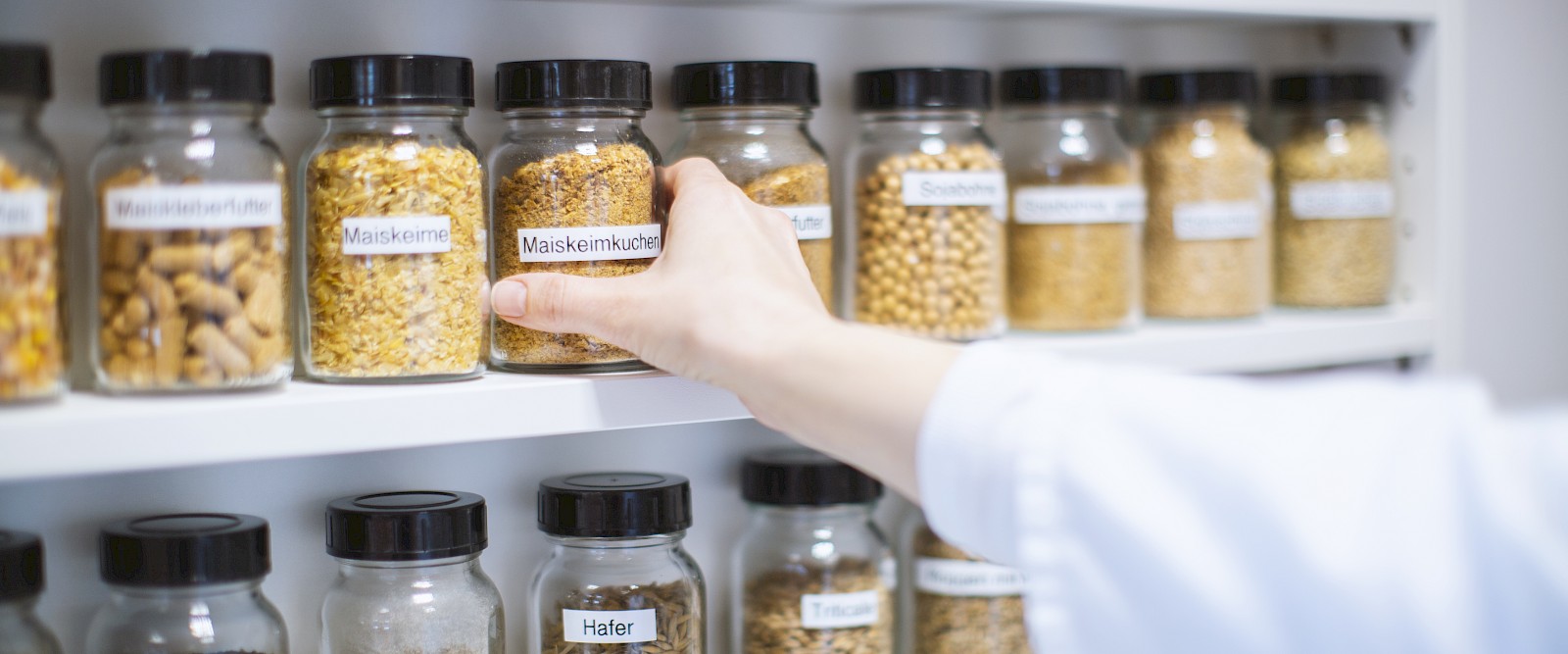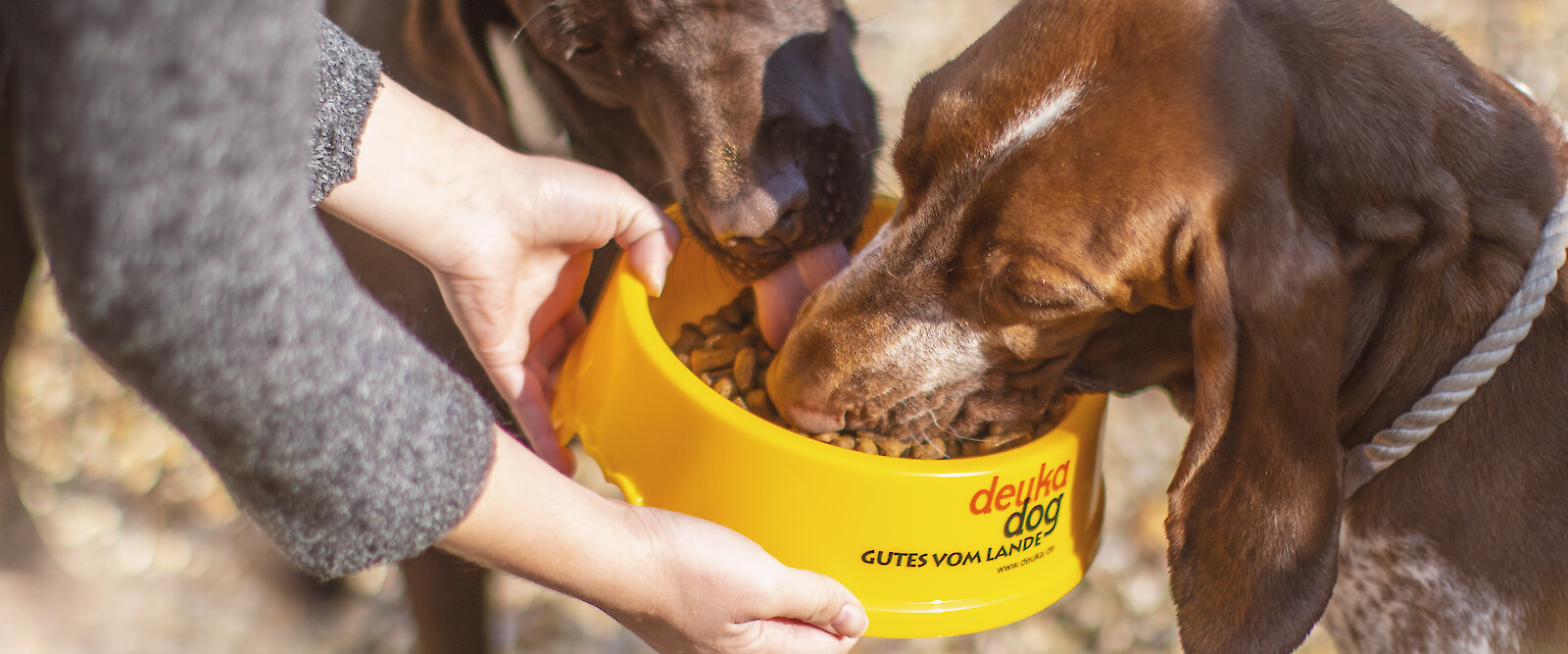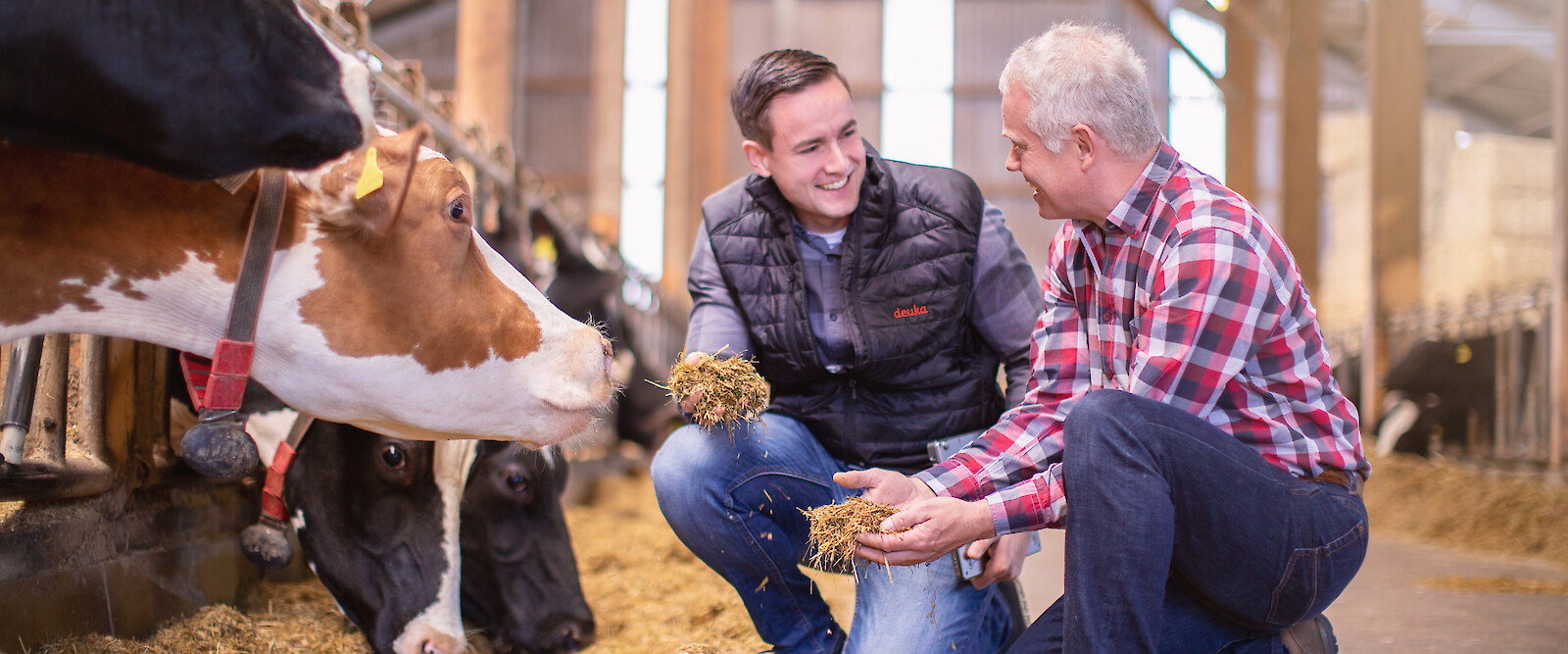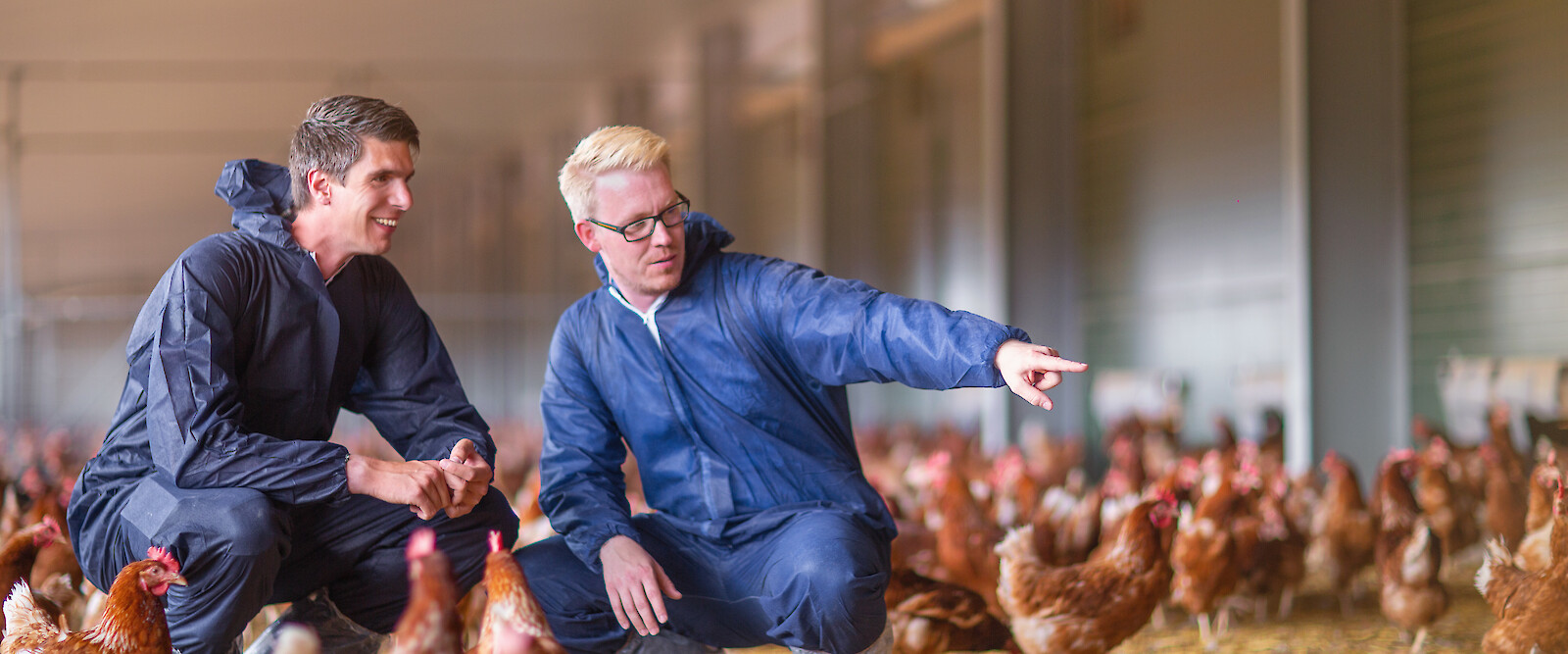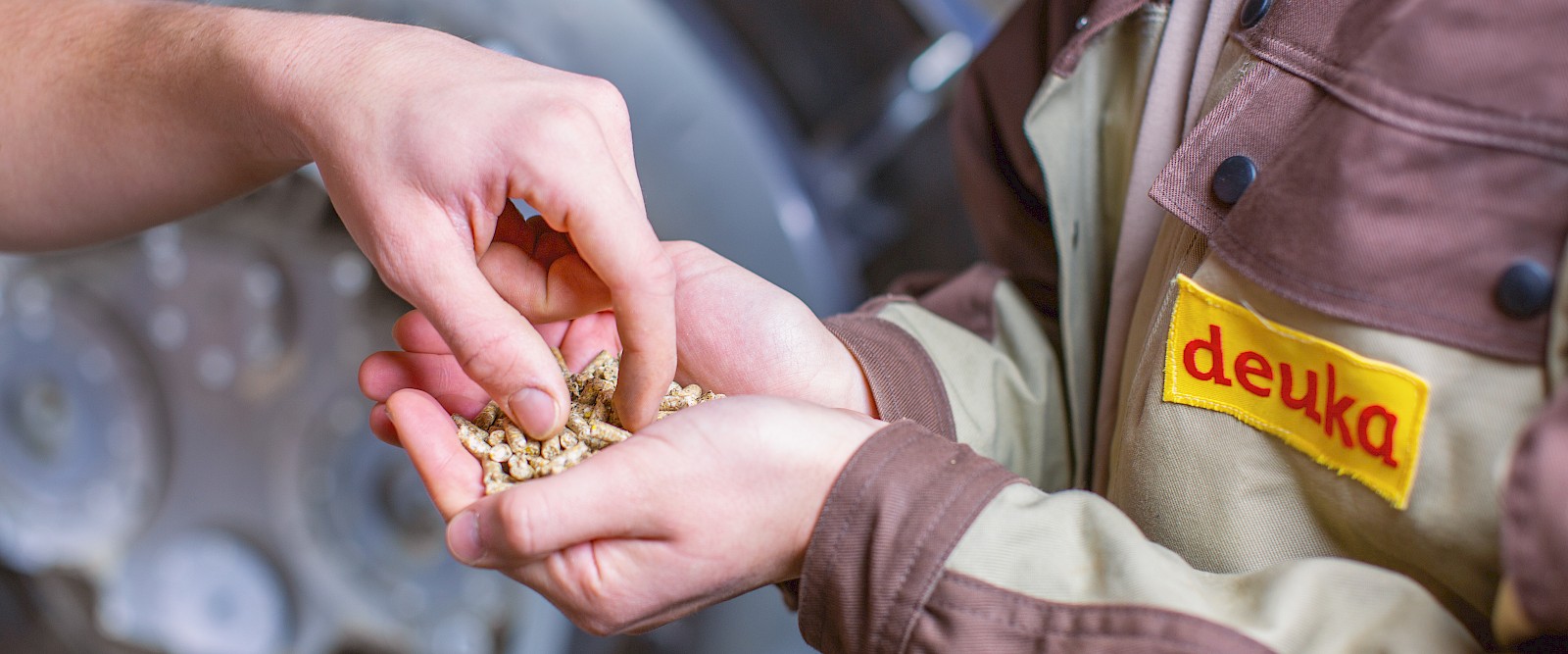Raw material and nutrient lexicon
Weitere Einträge
Threonine
Threonine is an essential building block for body protein and must be supplied to the animal with food, as it cannot be synthesised in the organism. It takes over tasks in the body as a component of digestive enzymes and immune substances and is important in energy metabolism. All low-protein feeds such as cereals contain little threonine. Protein-concentrated feedstuffs such as certain by-products of oil production for human nutrition (e.g. soybean meal, sunflower meal, rapeseed meal) contain correspondingly higher threonine concentrations. Threonine is particularly important for young growing monogastric animals (e.g. piglets). Here, the concentration of threonine in the individual feedstuffs is often not sufficient for a needs-based supply and the corresponding feed types are specifically supplemented with pure L-threonine. L-threonine is obtained by fermentation using certain microorganisms. The L-form can be fully utilised by the animal, whereas the D-form cannot.
